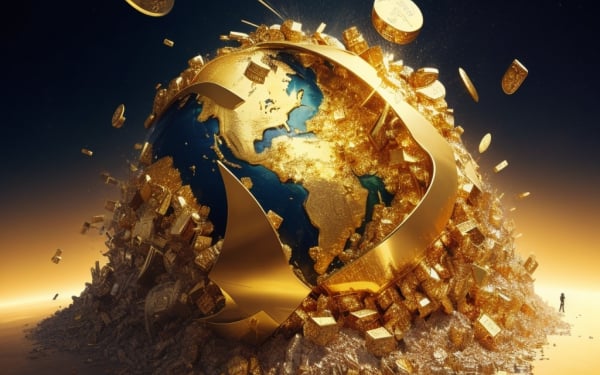
Cassiar Gold Corp. (TSXV: GLDC, OTCQX: CGLCF)
Revitalizing the Cassiar Gold District in British Columbia, Canada

Last week, when the People’s Bank of China (China’s central bank) disclosed on its official website that its gold reserves in May were unchanged from April and did not increase, it caused some extent of panic in the gold market.
Prior to this, China’s central bank has held the record of consecutive gold purchases for 18 months and, against the backdrop of the Federal Reserve’s repeated delays in the timing of interest rate cuts, China has become a significant force in stabilizing gold prices this year.
However, investors are level-headed, in the current geopolitical environment which is full of uncertainties, the idea that China’s central bank will not continue to buy gold is ridiculous. Spot gold last traded at $2,333.21 per ounce by Friday’s close, up 1.26% on the day and a cumulative 1.71% for the week.
It is worth pointing out that although the Federal Reserve announced this week that it would keep current interest rates unchanged and hinted that there may be only one interest rate cut during the year, it did not affect the mood of gold investors. Kitco News’ weekly gold survey shows that retail investors and Wall Street analysts both agree that gold prices will continue to rise next week.
Analysts believe that although the U.S. dollar will remain the world’s reserve currency, gold will play an increasing role in the multi-polar monetary world, as the precious metal remains one of the most liquid monetary assets in global financial markets. At the same time, the dollar’s role is diminishing. This week, the expiration and non-renewal of the 50-year petrodollar trade agreement between the United States and Saudi Arabia is saying something.
For Saudi Arabia, joining BRICS seems to be more in line with its future development needs. 3Sixty Strategic Advisors Ltd Managing Director Ali Borhani said this week that half of the world’s population is in BRICS+, and two-thirds of the world’s trade takes place in BRICS+. The BRICS countries are adding 74 million consumers a year, twice as many as Canada. Right now, the world’s largest energy buyers and largest energy sellers are both in the BRICS.
As a result of these far-reaching geopolitical changes, the case for gold as a global currency is clear. Many analysts point out that gold remains the best neutral asset to address trade imbalances. Therefore, going forward, it is not just China that will need to buy more gold, but countries around the world, especially those emerging market countries that are heavily dependent on the US dollar, will have to rebuild their gold reserves.